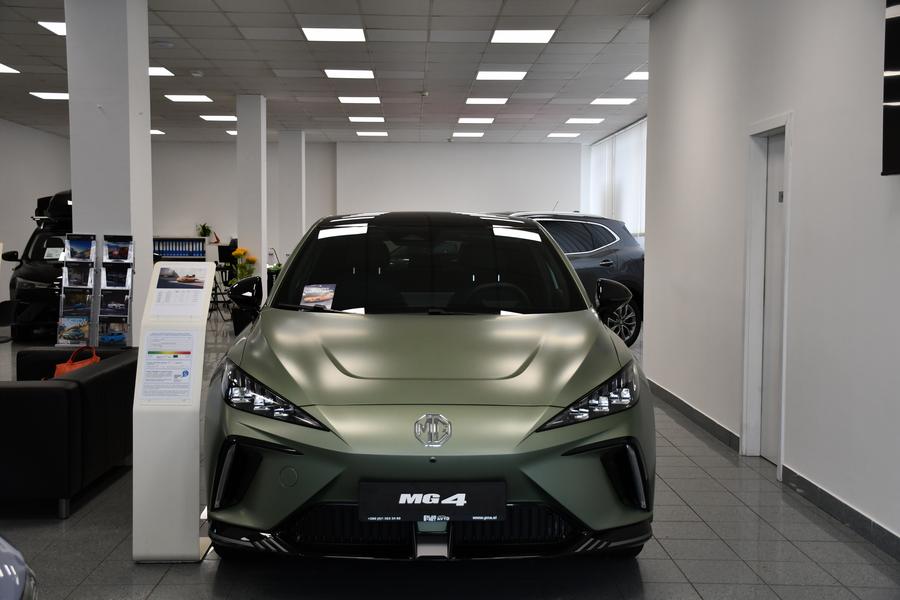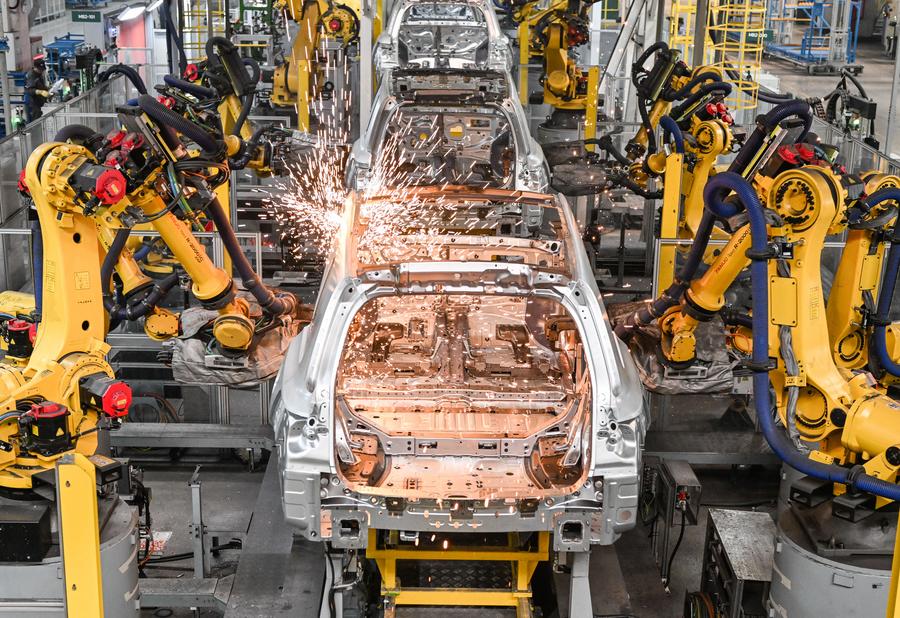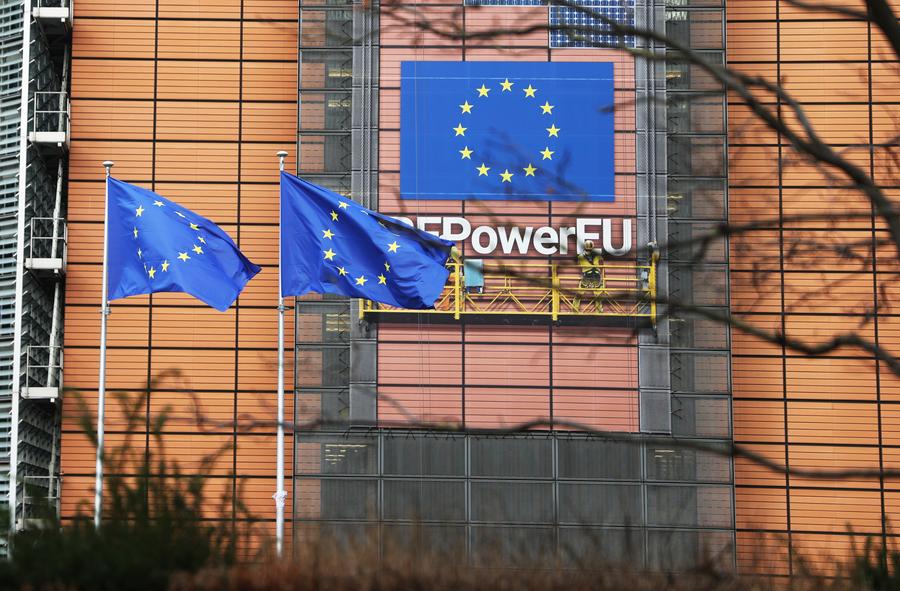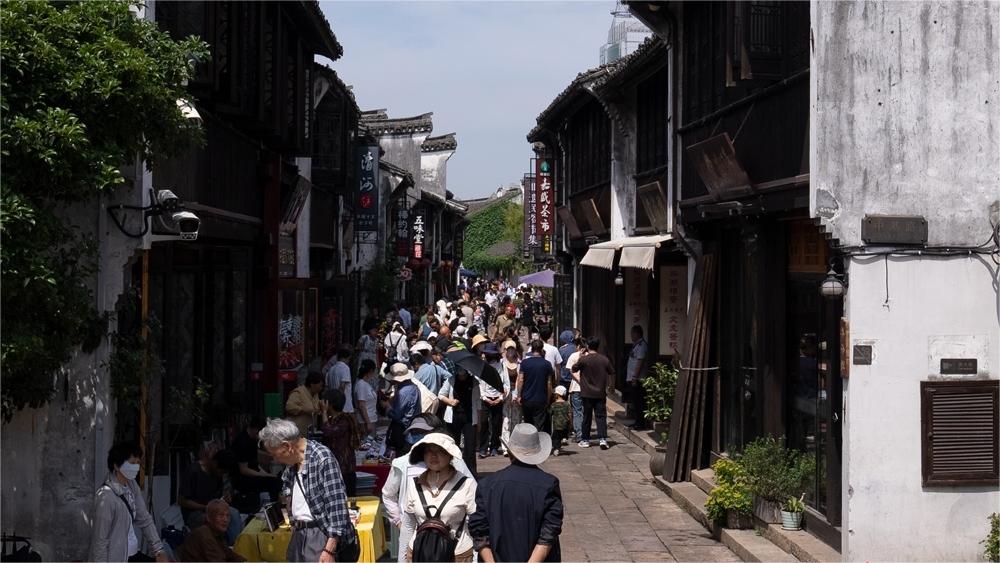EU tariffs on Chinese EVs harm European development long-term, analyst says

This photo taken on Feb. 1, 2024 shows a Chinese electric car MG4 on display at an MG sales center in Ljubljana, Slovenia. (Xinhua/Zhou Yue)
The tariffs, which have historically proven "harmful" to the global economy, will continue to negatively impact the electric automotive industry.
ZAGREB, May 30 (Xinhua) -- The European Union's (EU) high tariffs on Chinese electric vehicles (EVs) could negatively impact the long-term development of the European automobile industry, warns a Croatian political analyst.
In a recent interview with Xinhua, Kresimir Macan stated that the United States' (U.S.) influence on the EU's tariffs for Chinese EVs would not benefit the European economy.
He noted that the tariffs, which have historically proven "harmful" to the global economy, would continue to negatively impact the electric automotive industry.
On May 14, U.S. President Joe Biden announced new tariffs on a variety of imports from China, including EVs, in addition to existing tariffs under Section 301. The additional levy will raise tariffs on Chinese EV imports to 100 percent this year.
Last October, the European Commission launched an anti-subsidy investigation into the imports of EVs from China, and is set to determine whether punitive tariffs should be imposed to protect EU manufacturers from Chinese competitors.

Robots weld bodyshells of cars at a workshop of Chinese electric vehicle (EV) maker Li Auto Inc. in Changzhou, east China's Jiangsu Province, Jan. 10, 2024. (Xinhua/Ji Chunpeng)
According to statistics from the European Federation for Transport and Environment, around 20 percent of all-electric cars sold across the EU last year, or 300,000 units, were made in China. More than half of them come from Western carmakers, such as Tesla, Dacia and BMW, which produce them in China for export.
Macan argued that European consumers will ultimately suffer from the EU's tariff policy which would only lead to European products being more expensive and less technologically advanced. This, he argues, will make them less attractive compared to their Chinese counterparts.
"Only healthy competition to produce a quality and affordable product can sustain the world economy," Macan said.
Moreover, Macan expressed concerns about the broader implications of the tariffs on the global green transition. He said that such measures could undermine efforts to stimulate the production of environmentally friendly cars.

This photo taken on Nov. 15, 2023 shows part of the European Commission building in Brussels, Belgium. (Xinhua/Zhao Dingzhe)
Despite the EU's potential tariff hike, Macan said he believes Chinese EVs will find markets elsewhere due to their competitive pricing and quality. He urged the EU to focus on cooperation with China rather than imposing high tariffs, suggesting that collaboration would lead to better results for the development of the EV industry.
"High tariffs harm cooperation and healthy competition, but cooperation benefits all and always yields great results," Macan said, adding that for the EU, cooperation with China and other countries in this sector is "more than necessary" to boast the production of high-quality, technologically advanced EVs.
Photos
Related Stories
- BYD releases 5th-generation DM hybrid technology with 2,100-km range
- Elon Musk opposes U.S. tariffs on Chinese EVs
- Interview: U.S. high tariffs on Chinese EVs ineffective, harmful -- Croatian expert
- China's new energy products captivate at Hungary's GreenTech conference
- China "powering ahead" in key sectors -- leading management institute
- U.S. tariffs on Chinese EVs prioritize narrow self-interest over clean energy, free market ideals
Copyright © 2024 People's Daily Online. All Rights Reserved.









